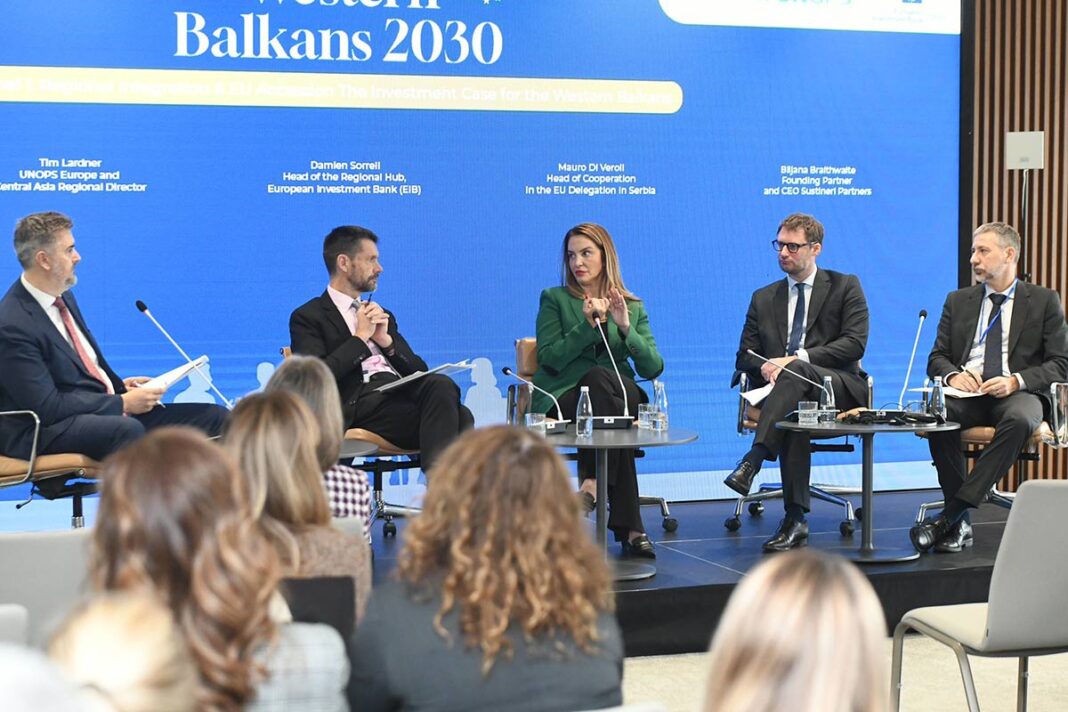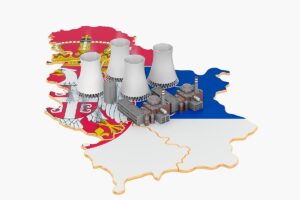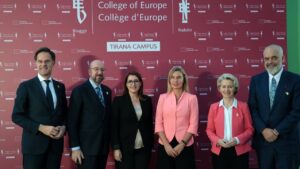The opening panel of the “Western Balkans 2030 – Connecting Today’s Efforts to Tomorrow’s Europe” conference, organised by The Region magazine with the support of the European Investment Bank (EIB) and UNOPS, brought together leading regional and EU stakeholders to explore how integration, investment and structural reforms can accelerate the Western Balkans’ path toward a modern, competitive economy.
Moderated by Aleksandar Andrija Pejović, EU accession expert and former chief negotiator for Montenegro, the discussion set the tone for the conference: the Western Balkans can no longer afford slow progress — the window for transformative change is now.
UNOPS: Accession Requires Real Results, Not Only Policies
Opening the session, Tim Lardner, UNOPS Regional Director for Europe and Central Asia, stressed that EU accession is fundamentally about delivering visible and measurable improvements to citizens — not merely aligning legislation or fulfilling formal criteria.
“EU accession is much more than political decision-making — every successful reform makes a country more attractive for investment, including in the Western Balkans,” he said.
Lardner noted that UNOPS has been present in the region for 20 years, supporting governments, institutions and communities through practical, on-the-ground implementation. Through programmes such as EU PRO and EU PRO Plus, UNOPS coordinated more than 500 grants worth €12.5 million, supported almost 1,700 companies, strengthened local competitiveness and improved social welfare.
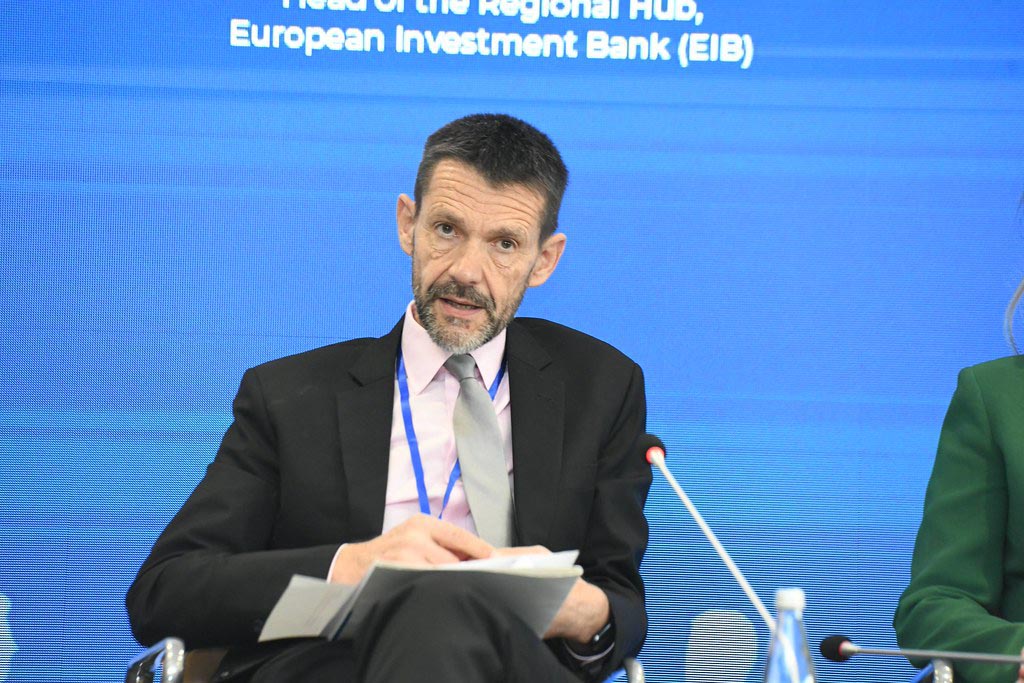
He also highlighted the organisation’s work with local governments on developing and equipping business zones, underscoring that “UNOPS connects policy with implementation,” making reforms tangible for citizens.
Addressing the green transition, Lardner warned against imagining it as a simple switch. “The green transition is not just replacing heating systems. It requires planning resilient infrastructure, building sustainable supply chains and creating a circular economy.”
He stressed that coordinated regional efforts are essential to achieve lasting impact: “We have achieved a great deal, but there is still much more to do — and it must be done together.”
EIB: Faster Implementation, Stronger Connectivity, and a Focus on the Next Generation
Presenting the perspective of the EU’s investment arm, Damien Sorrell, Head of the EIB Regional Hub, outlined a comprehensive vision for the region’s development. He identified three critical priorities that will define the Western Balkans’ trajectory in the coming years: accelerating the green transition, improving connectivity, and ensuring alignment with EU standards across sectors.
Sorrell emphasised that while major investments are underway, the pace of implementation must increase. “We want project implementation to move faster. There are delays, challenges linked to inflation and rising costs — but people need to see sustainable results,” he said.
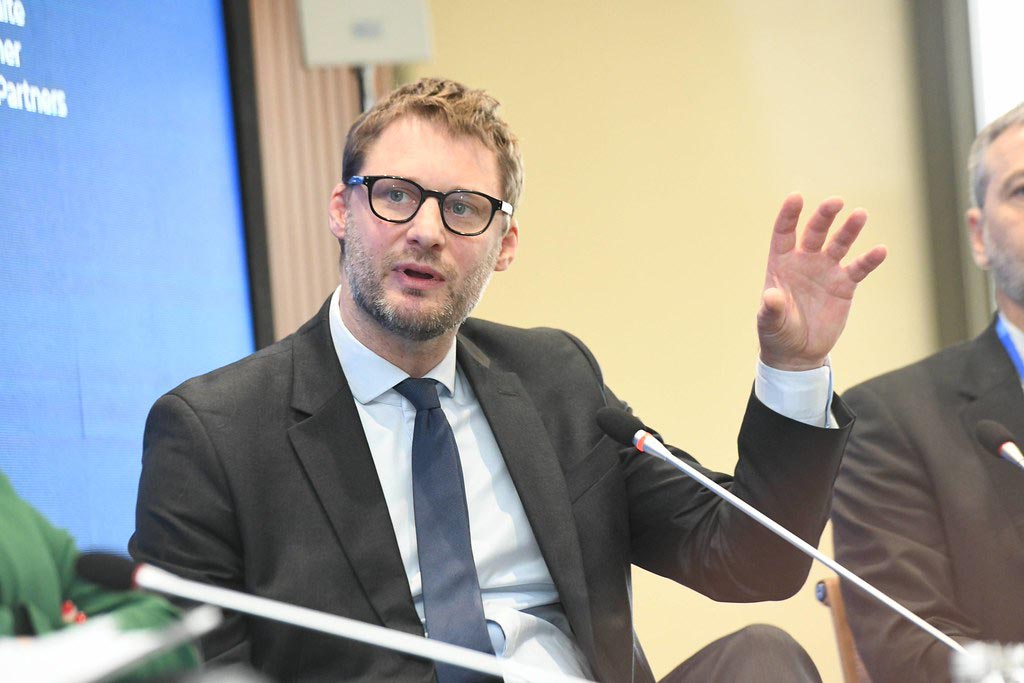
He also underscored that financing alone is not enough. The EIB provides extensive technical assistance, helping governments prepare, structure and deliver complex energy, transport and digital projects that meet EU norms and can access additional EU funding.
Cooperation, he stressed, remains the cornerstone of success. “We must work together across different projects. Cooperation is the key to achieving lasting change.”
His concluding message was aimed squarely at the region’s youth. “We need to do this for the next generations — they must be able to innovate, to build, and to stay in Europe.”
Sustineri Partners: ESG, Governance and the Cost of Delay
Biljana Braithwaite, Founding Partner and CEO of Sustineri Partners, offered a private-sector perspective, arguing that strong governance and long-term decision-making are indispensable for the region’s progress.
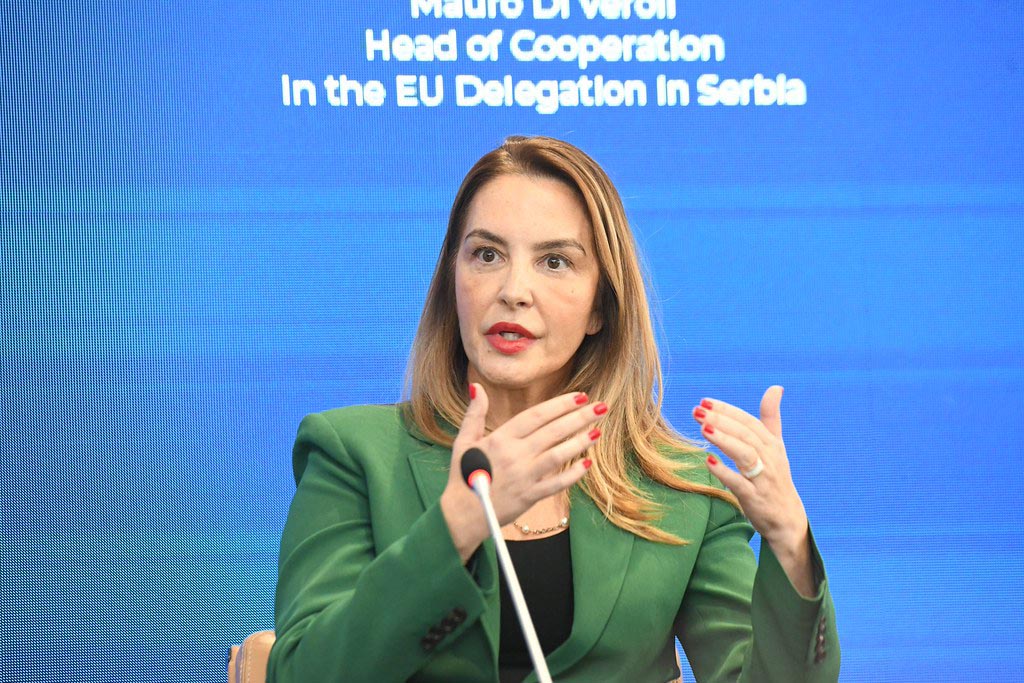
While ESG may no longer dominate headlines globally, she noted that global investors — from Europe to China — consistently seek clarity on sustainability, transparency and inclusion. She also pointed out that gender equality represents one of the region’s most underutilised sources of economic growth.
“Change never happens spontaneously. We must run toward these processes; the window of opportunity will not stay open forever,” she cautioned.
EU Delegation: Growth Plan as a Catalyst for Reform
Providing the EU’s institutional perspective, Mauro Di Veroli, Head of Cooperation at the EU Delegation to Serbia, presented the EU Growth Plan as a transformative opportunity for the region.
The plan links gradual access to parts of the EU Single Market with substantial financial incentives — and Serbia could unlock €1.6 billion if key reforms are met.
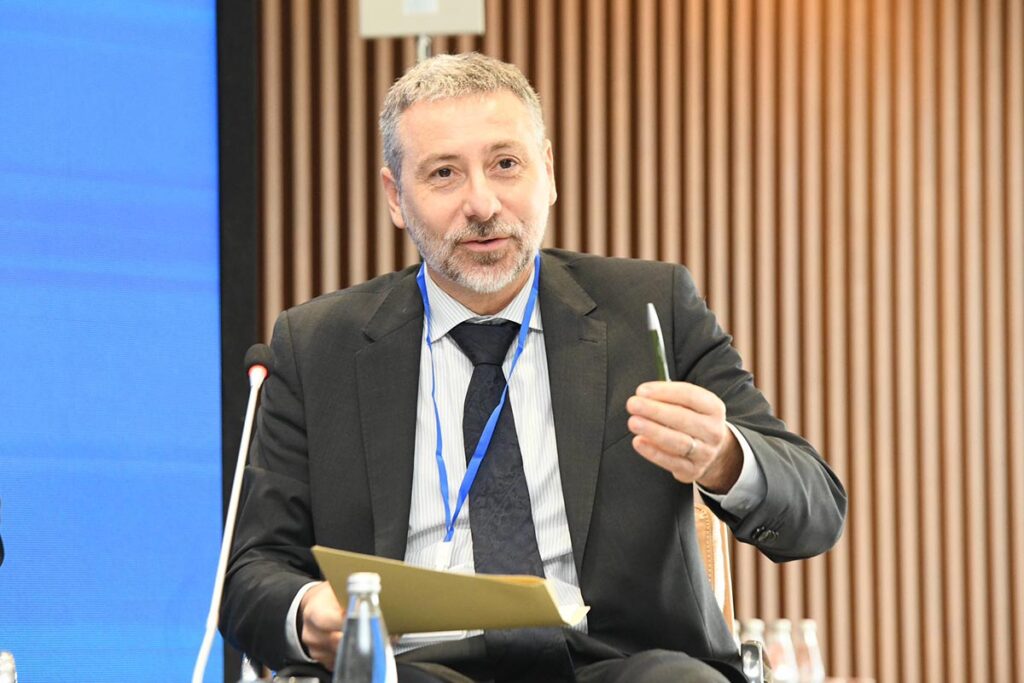
“This approach doesn’t replace IPA — it expands it,” Di Veroli said. “The more reforms the region delivers, the more resources become available. It is a powerful incentive for accelerating meaningful change.”
A Region That Must Not Miss Its Moment
Across all contributions, the panelists shared a unifying perspective: the Western Balkans stands at a critical moment, with a unique combination of geopolitical urgency, EU institutional readiness and growing private-sector interest.
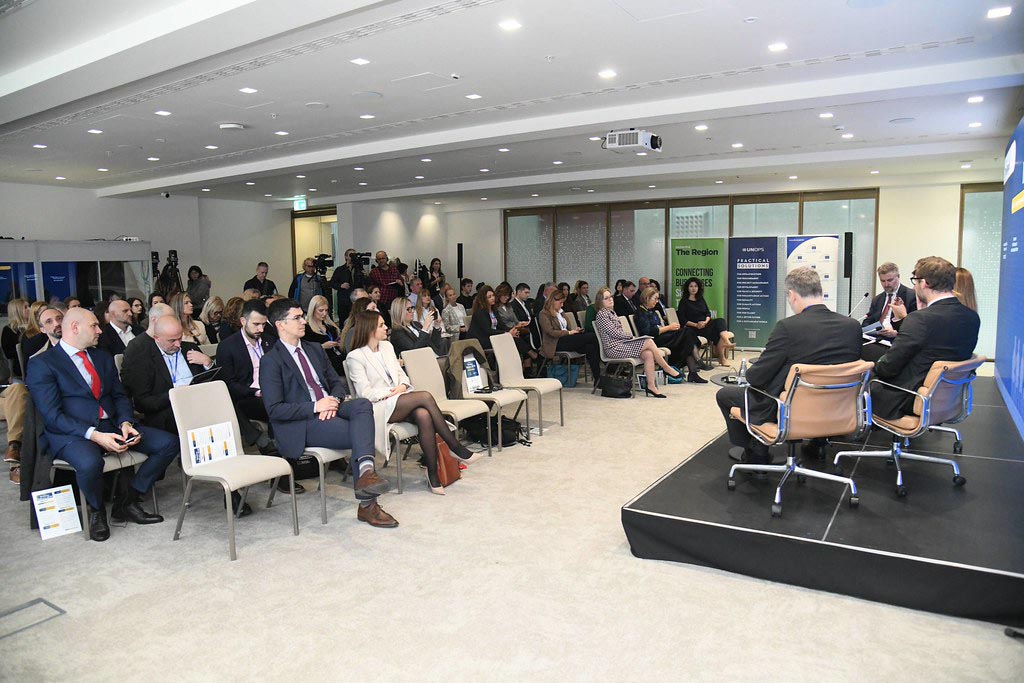
If the region accelerates implementation, strengthens institutions, deepens cooperation and leverages EU-backed investment tools, it can close the development gap faster than ever before.
The message was unmistakable:
EU accession is now an economic imperative — and the Western Balkans cannot afford to lose momentum.
Photos from the Western Balkans 2030 conference are available here.
Photo: Beta photo/Milan Ilic/Zoran Petrovic/Dario Kostadinovic

